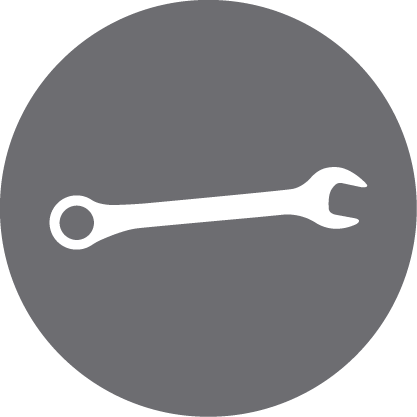Do You have a Brand? Or Just a Product?
“Brand or product?” If you’re an aftermarket manufacturer, you may be thinking, “Yes, of course I have a brand; its name appears prominently on our building, on our website, our letterhead; it’s everywhere.” Well, here’s another question: Even if your company’s manufactured quality products for generations, is your brand name recognized by the installer? True, you manufacture a product that’s packaged, then boxed. But after that, it’s sent to your warehouse, and sits on a shelf, where it waits to be shipped to the distributor for delivery to the end consumer. It’s all part of the process.
Let’s take a critical look at this process, and how it’s changed in the automotive aftermarket over the last 5 years. Early in my career as an automotive technician, when ordering a part from the parts store, it was delivered in packaging that carried the logo and brand stand of whoever manufactured it. Fast forward to today: every parts distributor has a private label brand. I won’t mention them all here, but there are several, and each may have a separate label, depending on the product category (brake pads, oil filters, thermostats, alternators, fuel pumps, etc.). As long as a manufacturer has to supply the component for someone else’s branded box, might as well be your company, right?
What’s the Risk of Private Label to the Future of Your Brand?
What danger does private label pose to the future of your brand? On the plus side, you’re still supplying the product, and sales are good. So good, they may even exceed the sales of your company’s own branded product. The numbers look great on the spreadsheet. And your board and investors are pleased with the elevated sales.
Switching gears, it’s now time to enter into negotiations with one of your distributors. They want to keep their own board and investors happy, and a key way to achieve this is by purchasing product at reduced cost. Remember, it’s your product in the distributors box, not your brand. They successfully negotiate a reduction—maybe it’s just one or two points—you can absorb that. You’ll turn to your raw material supplier and negotiate a price reduction. There are only few ways to reduce your cost of manufacturing that private label product:
- Reducing raw material cost
- Reducing labor cost
- Cutting overhead cost
- Outsourcing finished goods
By now, you may be outsourcing more finished goods from a Low Cost Country (LCC) supplier, but you’re keeping your distributor happy. The distributor is satisfied and sales continue to grow. Now, it’s time for another distributor to negotiate their contract. They know about the price reduction you granted your other distributor, so they demand a reduction. Again, it may be just a couple points, but you’ll still have to find a way to reduce your cost.
But, wow, those bulk boxed or private label product sales have increased steadily, so it’s imperative to keep the distributor chains happy, right? Your company’s branded product sales have decreased slightly, but the increase in private label sales help show an impressive year-end profit. Your company’s board members are satisfied, but ask why sales have decreased for the company’s branded product. This could be attributed to category saturation, or there’s no share of market left for your company’s brand to gain. Could this be attributed to the counterman at the part store pushing the private label product over yours? This scenario is very likely the reason your company brand product sales have declined. Your product still maintains its market share, and you’re achieving sales, albeit in the private label box, but everything still looks good.
“The competitor to be feared is one who never bothers about you at all, but goes on making his own business better all the time.” – Henry Ford
Is it that time already? More contract negotiations with your distributors and continued price point reductions. Your company is forced to outsource more finished goods, which means educating those LCC manufacturers on the right way to manufacture a quality product. After a few years of this, the LCC supplier you trained, is now manufacturing a quality product, and you find yourself purchasing more and more from them to put in both your box and the private label box, as well. Profit margins are reduced, but your company has tightened its belt still showing slight profit margins.
Uh-oh. One of your distributors demands an additional price reduction, due to either increased competition in the distribution network, or from online retailers taking a larger portion of sales. Your company has no more room to reduce cost, and you’re already purchasing a large portion of the product from LCC suppliers. You’ve also relocated manufacturing to get lower labor costs for the few products you’re still manufacturing. There’s just no room for a price reduction. The distributor declares that if you can’t reduce the price, they’ll find another supplier for their private label and their offering of your company branded product. You have become your own competitor and the private label won the fight. When the product is in any packaging and labeling other than your company’s, it only boosts sales, not brand recognition, and thus is your own competition.
“A house divided against itself cannot stand.” – Abraham Lincoln
You became a middleman—just another third party supplier the distributor decides to eliminate in order to do business directly with the LCC manufacturer. This is advantageous to both the distributor and the LCC manufacturer. The distributor purchases the product at a lower cost, offering a slight increase to the LCC since your company’s margin is not in the equation anymore. They have effectively split your margin and you’ve lost that distributor. Had the distributor represented only 3-5% of your sales, you may have absorbed the hit. But if they were 30% of overall sales, you couldn’t have taken the hit without painful bloodletting. No, don’t ignore the opportunity to sell your product in someone else’s box, but don’t neglect your brand in the process. Many of the large aftermarket automotive parts distributors have created overseas procurement offices to do exactly what I have just described.
The bigger issue? How the installer perceives your brand and whether they’ll request your product. Here’s a glimpse: For the last few years, you’ve been selling more and more product in someone else’s box, and under their brand, the installer has forgotten about your company’s brand name. They may even think you’d gone out of business, or better yet, acquired by the company private labeling your product in the distributor’s box.
“You can’t build a reputation on what you are going to do.” – Henry Ford
So, your company had lost its identity with the installer. And really, why would any distributor want your brand taking up shelf space when that space can be used for their private label? Brand recognition is even more important today than just a few years ago. Simply being a recognized brand is not enough; you must be seen as the manufacturer that helps the installer and cares about their customer. Achieve this by providing resources the installer perceives as bringing value to their business. If your brand creates a connection with the installer that is trusted, then the installer is much more likely to use your brand. You compete against the private label by creating the brand that is requested because it provides value to the installer. Yes, the private label and your brand may both be your product, and you still have the same market share, but you are in control of your brand’s future.
So, currently your sales may be good, and your brand has some digital presence and recognition, but what happens when the private label overtakes your label in sales? This is a downward spiral that is very hard to escape. Marketing department funds are cut, because who needs marketing when the distributor is marketing your product in their box, under their logo? It is imperative that you keep the company brand strong and out in front of the consumer. With the speed of digital marketing, it’s not enough to knock down the competition. You have to continue knocking them down.































